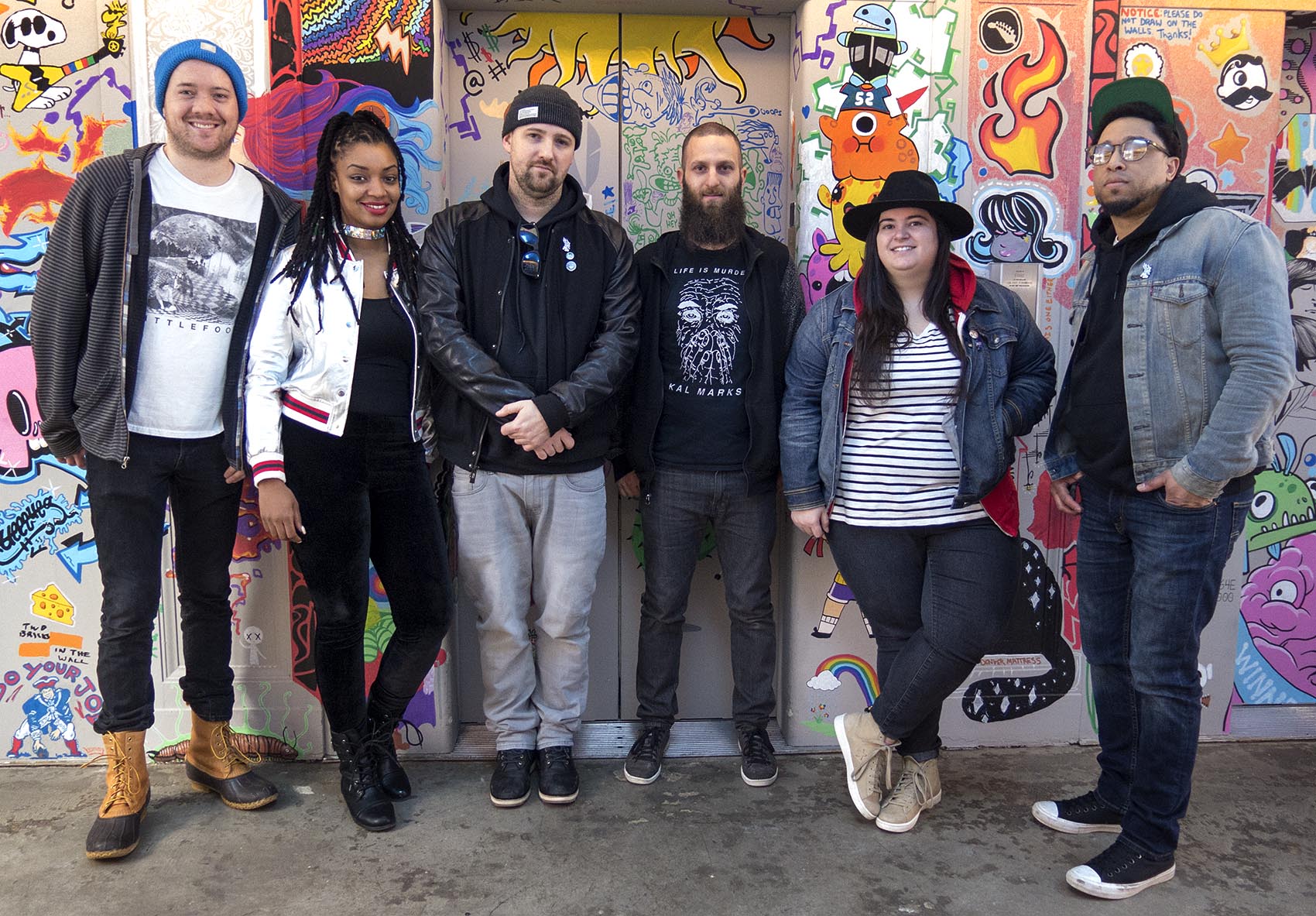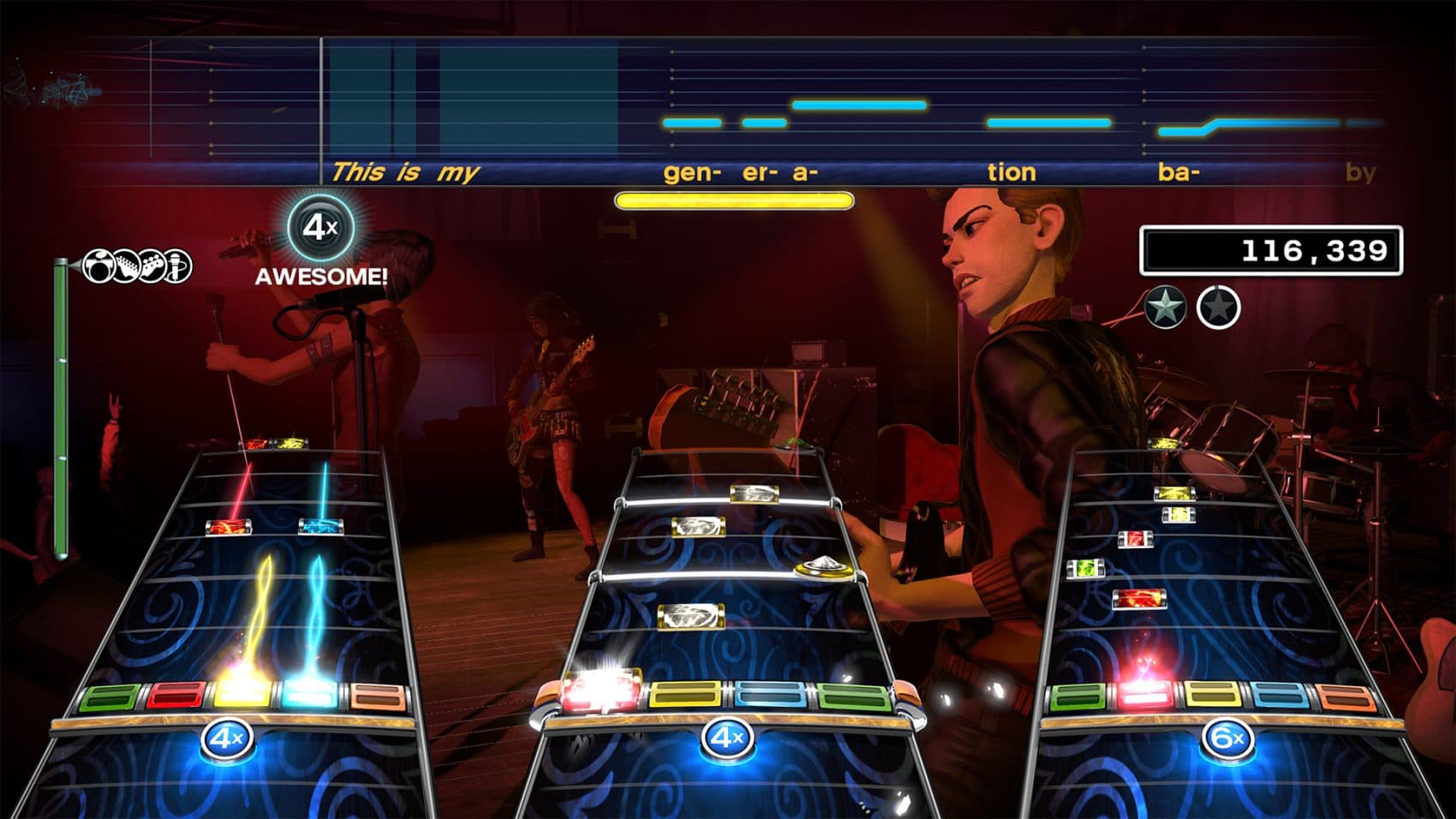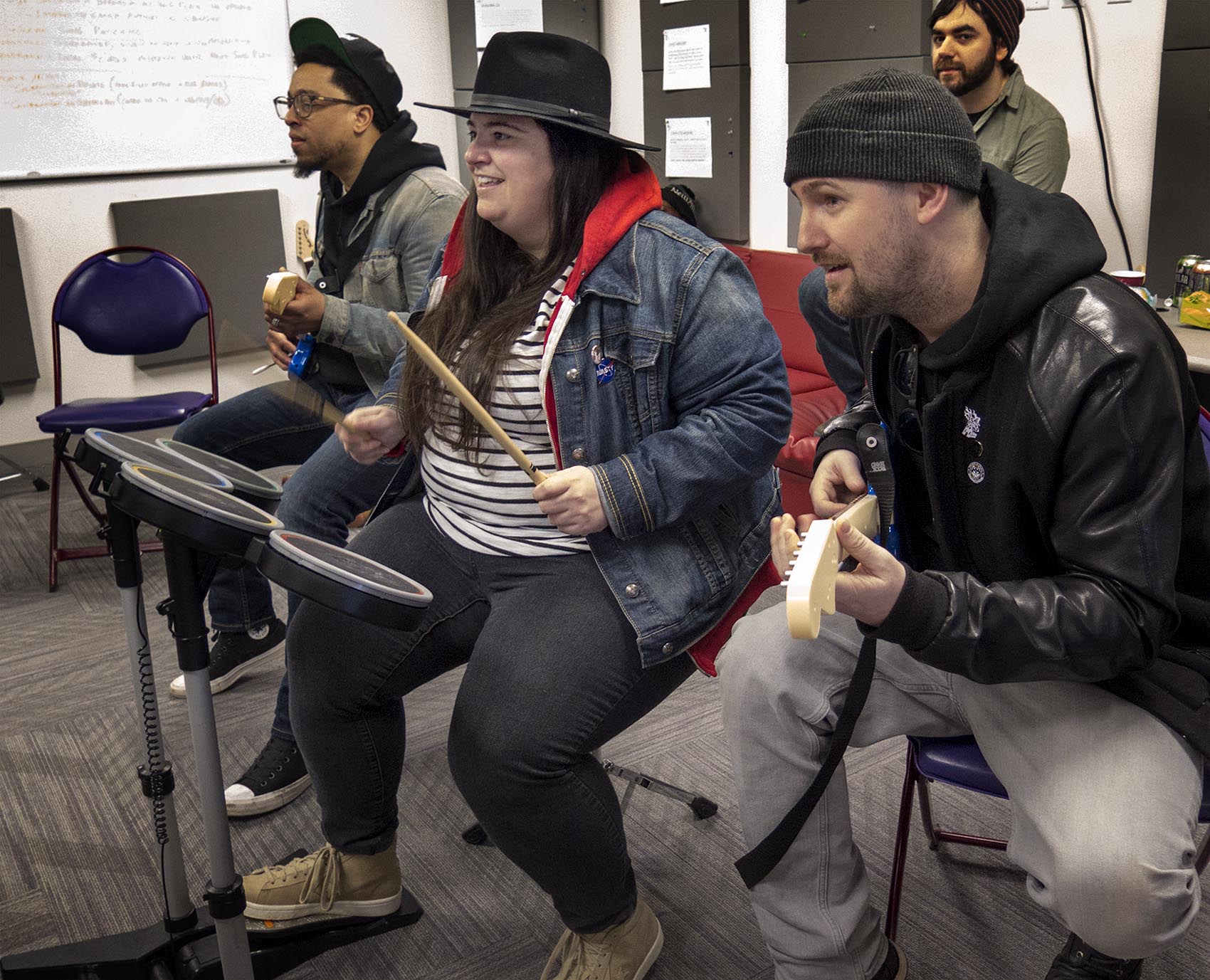Advertisement
'Rock Band' Gamers Can Now Play Songs By Boston's Indie Musicians

Move over Metallica. Well, that might be overstating it, but this month players of the popular video game “Rock Band 4” will discover something a little more homegrown in the lineup of songs by the mega-stars they usually jam to. It's a free sampling of tunes from Boston's diverse independent music scene. The small batch of video game Easter eggs are part of a novel collaboration designed to introduce a wider audience to local bands.
For almost 10 years, Boston-based game developer Harmonix has been delivering live in-concert performance fantasies through its "Rock Band" video games. If you haven't played the games before, don't worry, you are not alone.
To start, you click through a menu of songs to select. They're mostly by mammoth acts like Foo Fighters, R.E.M., The Grateful Dead, The Cars, The Cure, The Beatles and Judas Priest.
After making a selection, you and a few friends pick up the game’s plastic guitar, bass, drum sticks or microphone then sing or shred as part of a virtual band. The better you execute the visual cues on-screen, the more points you earn. You all rock out, your adrenaline surges and the crowds go wild.

But for the most recent upgrade to “Rock Band 4,” the game's developers decided to add a taste of the city where they work: 11 songs by local musicians. One of the them is vocalist Dutch ReBelle.
“Aka the light-skinned one with the dreads that raps,” she added as she introduced herself.
I met ReBelle and a few of the other contributing music makers at Harmonix's downtown Boston office. They assembled to experience the video game with their music featured for the first time. It was also ReBelle's initiation to the “Rock Band” universe.
“I stopped at like Sega Genesis — like the little shooting gun, Nickelodeon things. They're gone,” ReBelle said laughing, “and now I'm completely lost. So now it's like really humbling because 'Rock Band' is just such a big deal.”
Soul-blues singer-songwriter Julie Rhodes and the hip-hop duo STL GLD also made the trip to try out the “Rock Band 4” content update. Their degrees of history with the game ranged from zilch to occasional.
Advertisement
It was kind of surreal to watch ReBelle and her fellow flesh-and-blood musicians getting ready to play the rock simulation game. Some of them fumbled with their imitation instruments. They were clearly excited to see the game's avatars when they appeared to channel their music.
Soon ReBelle took the mic to merge her voice with an animated lead singer for the song she wrote called, “Rude Boys.”

“I actually feel like I’m going to mess up my own song,” ReBelle said laughing. Then she launched into her lyrics.
Harmonix project director Daniel Sussman was also in the room helping the group acclimate to the game.
“My hope is that somebody out there is going to decide that they love Dutch ReBelle, or that they love Bent Knee or whatever it is,” Sussman said, adding, “that there are these sort of moments to discover some really great bands from Boston.”
The local music added to the video game's catalog comes from “Boston Sessions, Volume 1: Beast,” a 13-song compilation created and paid for by a non-profit called The Record Company. Program director Jesse Vengrove directed the recording project.
“We think there's a lot of really cool stuff that happens in the music scene in Boston — but our city doesn't get the recognition that other cities get — like a New York or an LA,” Vengrove said. “So our mission is about supporting the scene and raising awareness about what's happening in the city.”
As The Record Company team worked on the album they also started brainstorming on ways to connect its local material with a wider audience. Co-founder Matt McArthur recalled wondering — even fantasizing — about a collaboration with Harmonix. “Rock Band” has hundreds of thousands of players, and he told me it seemed like an ideal — possibly unrealistic — fit.
“We weren't about to presume that we could just invite ourselves into this massive video game that’s bigger than we are, you know?” McArthur said.
Turns out the popular game's developers, including Sussman, were interested.
“The benefit to me is that we're able to work with a lot of independent local musicians, and then also organizations like The Record Company, to really take the best of what Boston has to offer musically and kind of jam it down the collective throat of the 'Rock Band' audience,” Sussman said with an almost mischievous smile.
“We're trying to bring some exposure to Matt and what The Record Company are trying to do, and sort of set an example nationally for how to grow and nurture a sustainable music and arts scene,” Sussman added.
Including local music in “Rock Band” actually isn't new. Harmonix employs a lot of musicians who have bands of their own, and sometimes their music ends up in the game. This was especially true in the early days of “Rock Band,” according to Sussman (who also has a band). But collaborating with a local music non-profit on a music release like this is a first.
Moe Pope, half of the Boston hip-hop duo STL GLD, is encouraged by Harmonix's sense of corporate responsibility.
“Maybe other companies that are based in Boston will start to respect the local scene as well, who knows?” Pope said with a laugh, “I appreciate them for this — like this is a big deal.”
Pope and STL GLD producer The Arcitype's song “Good” is also in the new “Rock Band” update. They think Boston corporations and music festivals should pay more attention to the artists in their own backyard.
“If they’re here, we’re here, too,” Pope said. “We’re breathing the same air, you know, they should probably look into that a little bit more. There’s a lot of talent here.”
The Arcitype added, “There’s just a ton of really large scale, corporate companies that have the ability to put local artists on a platform that is really hard — as independent artists — for us to build for ourselves.”
Then Pope stepped up to the “Rock Band” mic and joked that he was ready to butcher his own song.
The room full of musicians was also unique and valuable for the Harmonix engineers who adapt the bands' recorded songs into the “Rock Band” format. They decide on which alterations to make to the music so that the songs suit the different levels of difficulty. Put another way, they basically create remixes.
Sound designer Nick Gregoire told me it's pretty rare for artists featured in “Rock Band” to come into the Harmonix offices to try out their own songs.
“If you’re working on Justin Bieber, the Bieb's doesn't just stop by and play a song and give you the thumbs up,” Gregoire said. “But it's really great to see this kind of feedback.”
Local singer Julie Rhodes opted to play the drums in the “Rock Band” version of her song, “Hurry Up (& Wait for You).” Smiling, she admitted, “They're hard!" The Arcitype added, “Dude, it's tricky!”

Rhodes also played along with the song, “Alone Time,” by the band Tigerman WOAH. While her score was low, Rhodes also appeared to have gotten hooked.
“Honestly, when we would finish a song I would want to play it again to do it better,” Rhodes said. “I could see people getting into a song, and wanting to listen over and over to try to beat their score.”
Which is what makes “Rock Band” an interesting mechanism for discovering new music, according to The Record Company's Matt McArthur.
“It's different than music being played ambiently in a store, or in a video you're watching on the internet,” he said. “It's the only music delivery system that I know of that's interactive and that forces you to pay attention to it. I think people will have an easier time developing a relationship with a song because of how intimately they have to get involved with it in order to play it.”
And that's of course the hope for the locally-made songs that have been slipped into the "Rock Band" offerings.
Harmonix hopes for its own practical payback after covering between $50,000 and $60,000 in production costs for the local music add-ins. Sussman said giving people “awesome” free music can have a huge impact on retention.
“That's the word we use in the business to describe what happens after people buy the game. Are they going to play it tomorrow? If they do, we have retained them,” he explained. “And so that's what we'd like to get for the 'Rock Band' community.”
Working with the Harmonix community, and meeting the creatives who work there, has been exciting for Dutch ReBelle. She feels this collaboration isn’t only about highlighting Boston’s diverse music scene.
“There's a lot of different type of people out here. You know, we have a lot of different types of walks of people. So bringing tech together, bringing visuals together, bringing the music together, bringing different artists together — that’s dope,” she said, “awfully dope.”
Dutch ReBelle and the other Record Company musicians are curious to see what sort of an effect the “Rock Band” experiment will have. Who knows, maybe someday when they’re on tour in say, Kansas or the U.K., a new fan might just come up and say they found out about their Boston band's music through a video game.
This segment aired on March 27, 2017.
